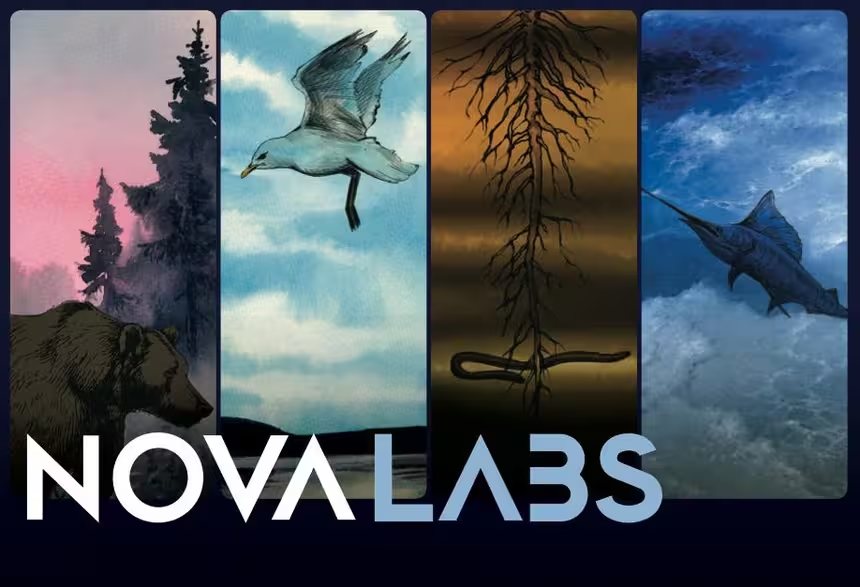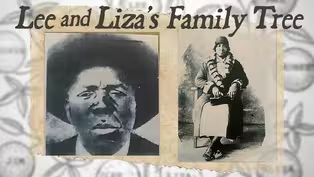
Can DNA technology Help Rebuild a Family Tree?
Clip: Season 50 Episode 18 | 3m 28sVideo has Closed Captions
A Black family uses DNA technology to unlock secrets of the past.
Many Black families in America don’t have robust ancestry records because of the legacy of slavery and family separation. But this documentary filmmaker is on a mission: use DNA technology to solve the mysteries of his family tree.
Problems playing video? | Closed Captioning Feedback
Problems playing video? | Closed Captioning Feedback
National Corporate funding for NOVA is provided by Carlisle Companies and Viking Cruises. Major funding for NOVA is provided by the NOVA Science Trust and PBS viewers.

Can DNA technology Help Rebuild a Family Tree?
Clip: Season 50 Episode 18 | 3m 28sVideo has Closed Captions
Many Black families in America don’t have robust ancestry records because of the legacy of slavery and family separation. But this documentary filmmaker is on a mission: use DNA technology to solve the mysteries of his family tree.
Problems playing video? | Closed Captioning Feedback
How to Watch NOVA
NOVA is available to stream on pbs.org and the free PBS App, available on iPhone, Apple TV, Android TV, Android smartphones, Amazon Fire TV, Amazon Fire Tablet, Roku, Samsung Smart TV, and Vizio.
Buy Now

NOVA Labs
NOVA Labs is a free digital platform that engages teens and lifelong learners in games and interactives that foster authentic scientific exploration. Participants take part in real-world investigations by visualizing, analyzing, and playing with the same data that scientists use.Providing Support for PBS.org
Learn Moreabout PBS online sponsorship(bright music) - [Byron] Who isn't curious about family history, where we came from, who our people are, - We know nothing.
We have to rely on some of our older family members to really tell us what they remember.
- I heard that they say he was a tall, fair-skinned man with green eyes and red hair.
- [Byron] My family is on a quest.
We are hoping that DNA testing can unlock secrets of the past, because like so many families like ours, our family tree is incomplete.
- [Voiceover] Before we started this ancestry research, I didn't know anything about Lee Hurt.
- [Byron] Lee Hurt and Eliza Waller, our oldest known patriarch, and matriarch, sit at the very top of our family tree.
They're kind of like our families' Adam and Eve.
(audience laughing) Lee and Eliza had 14 children, and spawned a long line of descendants.
But other than that, we don't really know that much about them.
Who are Lee and Eliza, and where did they come from?
I'm Byron Hurt.
I'm a documentary filmmaker, and I'm a member of the Hurt Waller family.
I've always been super curious about our family's origins, beyond Lee and Eliza.
Many European Americans are able to discover their family roots using public records, and genetic ancestry test kits.
But for African American families like mine, the path to learning family history is much more challenging.
Since Emancipation, black families torn apart during slavery, have had to work hard to reunite, and discover the truth about their past.
My family has no idea who Lee and Eliza's ancestors are, because unfortunately we can't go back any further than 1863, the year Lee Hurt was born.
Why is it so difficult for us as a family, to learn the information that we need to learn, about Lee Hurt's parents, his grandparents, Eliza Hurt's, grandparents, great-grandparents, and so on and so forth?
- Well, our lives did not count in the way that other people's lives counted.
You know?
I mean, if we ever needed a Black Lives Matter Movement, it would've been from our very inception on these shores.
Our lives didn't count.
Plus we don't have the scientific record of Africa, that would allow us to make the the bridges that we know exist, because we are an African people in North America, - [Byron] The big DNA databases are mostly made up of samples from people of European descent, with a lot fewer DNA samples from black people, whether they are now living in Africa or the Americas, - The African database is not robust.
There's not a lot of information within the database, because the way that genetic sequencing, and ancestry reconstruction works, is that you take an unknown sample, say your sample, and then we try to match it to samples that we have already identified.
If we can't match the unknown sample to samples that we have already identified, then we have a problem.
DNA can tell you some of your family history, but it's not all encompassing.
Lee and Liza's Family Tree Preview
Video has Closed Captions
Preview: S50 Ep18 | 30s | A family turns to science in their struggle to rediscover a history obscured by slavery. (30s)
Providing Support for PBS.org
Learn Moreabout PBS online sponsorship
- Science and Nature

Capturing the splendor of the natural world, from the African plains to the Antarctic ice.













Support for PBS provided by:
National Corporate funding for NOVA is provided by Carlisle Companies and Viking Cruises. Major funding for NOVA is provided by the NOVA Science Trust and PBS viewers.



